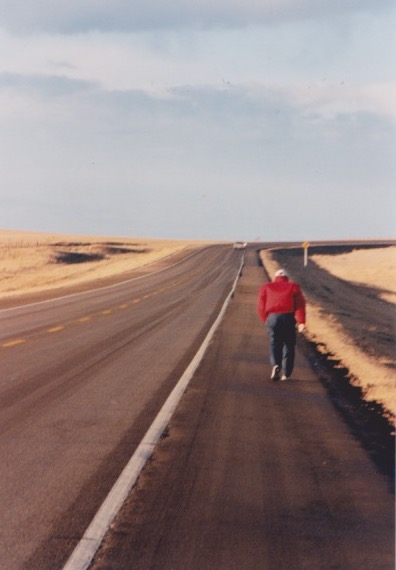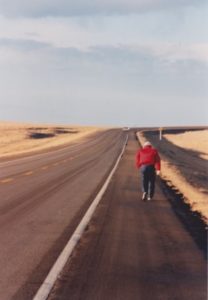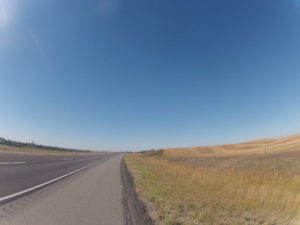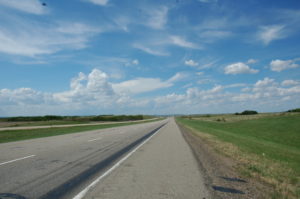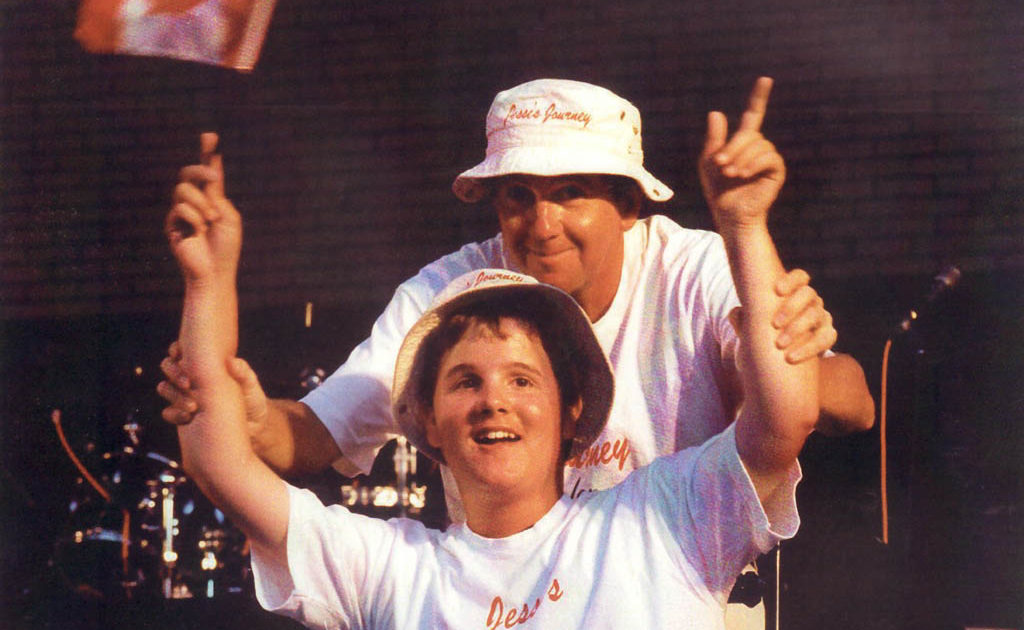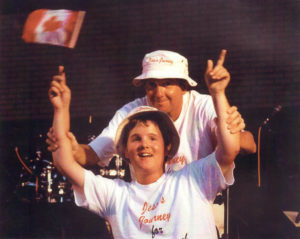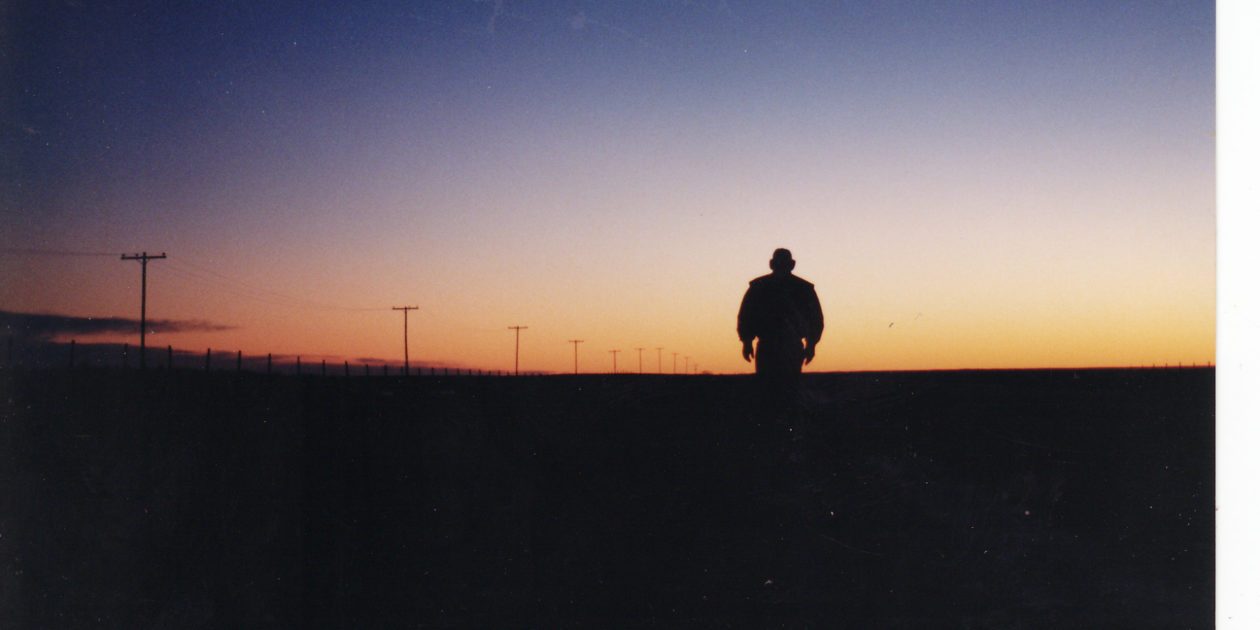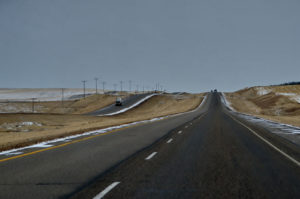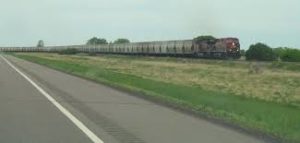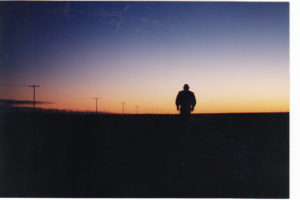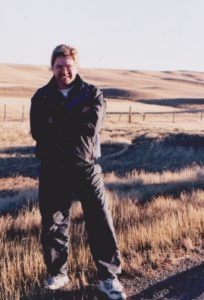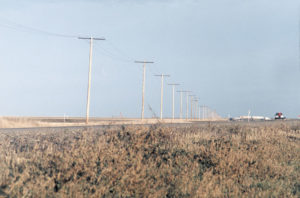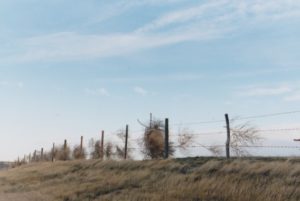20-years-ago today I was in Brooks, Alberta, a quiet little town of about fifteen-thousand people, in southeast Alberta. Brooks is where I started to feel that the Prairies would soon be coming to an end. Ever since leaving Winnipeg, the Trans-Canada has been a ribbon of highway that runs pretty much straight across Manitoba and Saskatchewan and into Alberta. At Brooks the straight line finally came to an end. We are now heading northwest toward Calgary, which is just under 200 kilometres away. I know that sometime in the next few days I’ll get my first glimpse of the Rocky Mountains well off in the distance.
Not a lot happens in Brooks, Alberta which, long ago, was used as a bison-hunting ground for the Blackfoot and Crow. Shortly after the signing of Treaty 7 in 1877, homesteaders moved into the area and began farming. They’ve been quietly doing that ever since.
Once again I am amazed at how fortunate we have been in that we really haven’t seen much in the way of accumulated snow. But maybe I shouldn’t be surprised. The winters in Brooks, Alberta are dry and cold with very little snowfall compared to the rest of Canada. Chinook winds are not uncommon here. Most of the precipitation comes in late spring and summer, often as thunderstorms. With Christmas less than a month away, we are still managing to pretty much dodge the weather bullet.
A week ago I faced my toughest day on the road and now things have once again settled into our familiar routine.
While it’s very cold, the wild seems to have eased somewhat in the last couple of days. First thing in the morning, all the routine things are in place. Vehicles are fueled, the walkie-talkie batteries are fully charged, water is on board the escort vehicles along with everything from granola bars to dry socks. Ed Coxworthy has seen to it that I‘ve had his Newfoundland porridge for breakfast. He’ll leapfrog ahead of us with the motor home and there will be hot tea and cut up fruit waiting at the morning break. (We learned back in Nova Scotia from a woman who was a great volunteer that men will eat fruit if it’s cut up. I had a good laugh when she said to Ed Coxworthy, “Now remember Ed, men will eat fruit if you cut it up for them. If not – forget it.”) The road crew has given me my instructions about checking my ears, my cheeks, my nose and my lips in regard to frostbite. As soon as the RCMP escort arrives or our own escort vehicles are in place, we’re on our way again.
I always like to get more than half my daily distance of 33 kilometres a day finished before lunch. Mentally, I always find it easier to get back onto the road in the afternoon, knowing I have less distance to cover than I completed in the morning.
People continued to pull their cars, pickup trucks, motor homes and sometimes a transport truck to the side of the road to make donations, take pictures and offer words of encouragement. My journal notes mention a woman who stopped to give me a big hug. Her son has Cerebral Palsy. She knows why I’m here on the highway.
Another lady pulled to the side of the road during the morning tea and fruit break. She brought her young son on board. She told me quietly that he was never supposed to walk or talk. I can see that he can do both very well. Her eyes were wet and glistening when I gave her a big hug.
Along the highway a man stopped and made a donation. All the said was, “That’s in memory of my son.” Then he drove off without another word.
We’ve probably all heard about the six degrees of separation. I was always amazed on the road how often I would meet somebody who knew somebody I knew.
At the end of the day in Brooks, Alberta I was speaking to a group of service club members and after I finished a man came up to me and said, “Did you say you’re from London?” When I said yes he asked about high school and within 60 seconds I discovered that this man played tuba in the high school band with my wife’s brother! It really is a small world. I wonder when we will finally figure out that we are all living on the same small ball and it’s up to us to look after each other and look after the small ball we are living on.
While I was on the road I remember reading a quote from someone whose ancestors may have been among those who hunted bison in Brooks, Alberta a long, long time ago. He said, “Maybe when the last fish has been caught and the last tree has been cut down, we will finally discover that you can’t eat money.”
And so it went on Day number 234.
Stay tuned. The Journey continues…….

